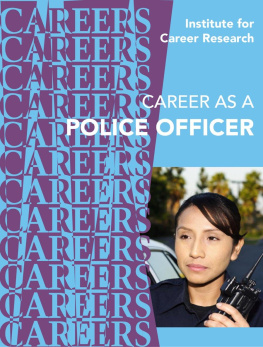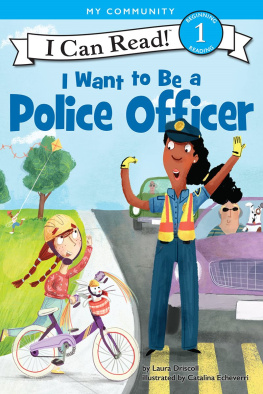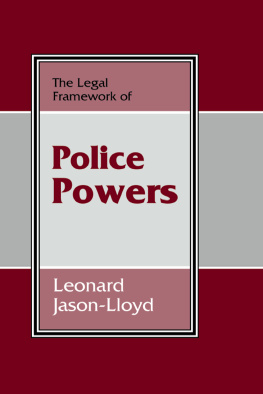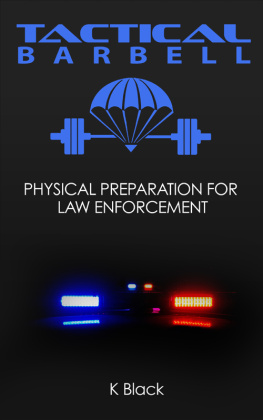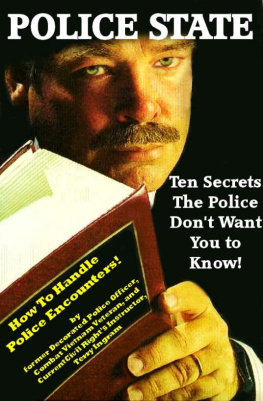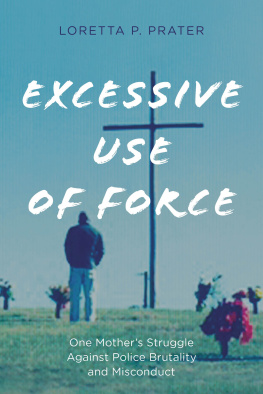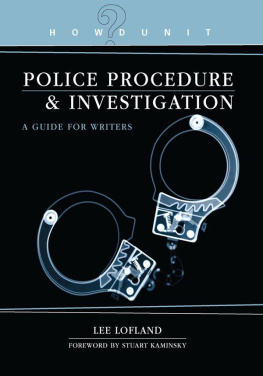Stop and Frisk
Every law enforcement patrol officer and investigator needs to understand both the tactical considerations of stopping and frisking a suspect and the legal constraints that should govern that power. Recent years have shown clearly the damage that can be done when police lack an adequate understanding of the legal foundation for their activities. In this new edition of Stop and Frisk, Mitchell and Connor team up to provide active or aspiring police officers with the knowledge of applicable law as well as practical techniques they need to safely and legally carry out their crime-suppression and investigative duties. This updated edition includes clear summaries of the major cases of the last decade and the lessons learned when police and communities lacked adequate understanding of the legal foundation of law enforcement activity.
Ideal for in-service training at the post-academy level, this book also gives time-tested tools to police officers, supervisors, and legal advisors. Stop and Frisk can be used to teach undergraduate Criminal Justice majors as well as concerned citizens to prevent crime in their communities.
Douglas R. Mitchell, J.D., M.P.A., has been an attorney for 30 years. He is a deputy prosecutor in Washington State, assigned to the Civil Division of his office. His duties include advising several clients in different parts of the Criminal Justice system, and serving as public records officer for the office. He has broad experience in both civil and criminal duties, including the prosecution of violent felons.
He is a graduate of the University of Illinois College of Law and Police Training Institute, and he has been a prosecutor and part-time officer in Illinois and Washington. His primary interest is in the legal foundations of law enforcement operations, and he has authored and co-authored several books and articles on related topics.
Gregory J. Connor, M.S., is Professor Emeritus at the University of Illinois Police Training Institute. For more than four decades he provided both practical and tactical education and training to police officers and corrections personnel.
Professor Connor has published numerous texts and articles on associated topics in the criminal justice field and is a recognized expert on such topics as use of force, contact controls, police pursuits, jail and police procedures and policies, etc.
He is the originator of the Use of Force Model and the recent Police and Jail Control Models designed and developed for peace officers throughout the country and additional graphic illustrations to enhance the training effort in areas including use of force issues, stop and frisk dynamics, vehicle stops, and contemporary operations in both police agencies and jails.
While the phrase every police professional should have this text in their library is often overused, I have to attach that mindset to this new manual. Right from the opening pages, this 140-page reference book is loaded with relevant material every police trainer, first- or second-line supervisor, and/or academy instructor needs to know.
David Grossi, Grossi Consulting, Bonita Springs, FL; Irondequoit (NY) Police Department (Lieutenant, retired)
My experience is that officers who dont understand the concept of investigative detention will do one of two things when confronted by person(s) who are behaving suspiciously: either they will fail to act, diminishing their ability to prevent crime, or act without the proper legal authority, which causes the criminal prosecutor many problems later. Not to mention, we as peace officers have a duty to protect the Constitutional rights of all citizens or inhabitants of every jurisdiction. I would recommend that veteran officers need this text even more than academy cadets. The authors experience makes this a real world text that will be invaluable to successfully performing a very difficult job.
Dale Mann, Georgia Command College; retired director, Georgia Peace Officers Standards and Training Council
Mitchell and Connor have done law enforcement, the legal profession, andimportantlyinterested members of the public a tremendous service. In easy-to-understand language, they have explained what types of encounters the public and police can have, the legal standards for them, and best practices for them.
Sergeant Erick Gelhaus, Sonoma County, CA, Sheriffs Office
This should be mandatory reading for anyone teaching Terry stops to all peace officers, jurists, or prosecutors looking to stay current on this important area of law. It nicely blends the arcane world of legal matters with the gritty humor and wisdom of the street cop.
Lieutenant Colonel David G. Bolgiano, USAF (retired), author of Virtuous Policing
Third edition published 2018
by Routledge
711 Third Avenue, New York, NY 10017
and by Routledge
2 Park Square, Milton Park, Abingdon, Oxon, OX14 4RN
Routledge is an imprint of the Taylor & Francis Group, an informa business
2018 Taylor & Francis
The right of Douglas R. Mitchell and Gregory J. Connor to be identified as authors of this work has been asserted by them in accordance with sections 77 and 78 of the Copyright, Designs and Patents Act 1988.
All rights reserved. No part of this book may be reprinted or reproduced or utilised in any form or by any electronic, mechanical, or other means, now known or hereafter invented, including photocopying and recording, or in any information storage or retrieval system, without permission in writing from the publishers.
Trademark notice: Product or corporate names may be trademarks or registered trademarks, and are used only for identification and explanation without intent to infringe.
First edition published by Stipes Publishing L.L.C. 2000
Second edition published by Stipes Publishing L.L.C. 2007
Library of Congress Cataloging-in-Publication Data
Names: Mitchell, Douglas R. (Lawyer), author. | Connor,
Gregory J., author.
Title: Stop and frisk : legal perspectives, strategic thinking, and
tactical procedures / Douglas R. Mitchell and Gregory J. Connor.
Description: Third edition. | New York, NY : Routledge, 2017. |
Includes index.
Identifiers: LCCN 2017021206 | ISBN 9781138302945 (hardback) |
ISBN 9781138302969 (pbk.)
Subjects: LCSH: Stop and frisk (Law enforcement)Law and
legislationUnited States. | Stop and frisk (Law enforcement)
United States.
Classification: LCC KF9630 .M58 2017 | DDC 345.73/052dc23
LC record available at https://lccn.loc.gov/2017021206
ISBN: 978-1-138-30294-5 (hbk)
ISBN: 978-1-138-30296-9 (pbk)
ISBN: 978-0-203-73158-1 (ebk)
Typeset in Goudy
by Apex CoVantage, LLC
The authors would like to dedicate this text to:
Detective Martin McFadden, Cleveland (OH) Police Department. Without his excellent performance in the initial phases of what would become Terry v. Ohio , American law enforcement probably would not have the resulting tool to use to interdict crime and protect the community.
Patrick A. Rogers, Sergeant, NYPD (ret.); CWO2, USMCR (ret.); and so much more: friend, mentor, historian, and teacher. As he said, Bad guys are bad guys, no matter their plumbing, their accent or how they came out of the paint shop.(11/18/2013)
RIP, Pat. We are diminished.


